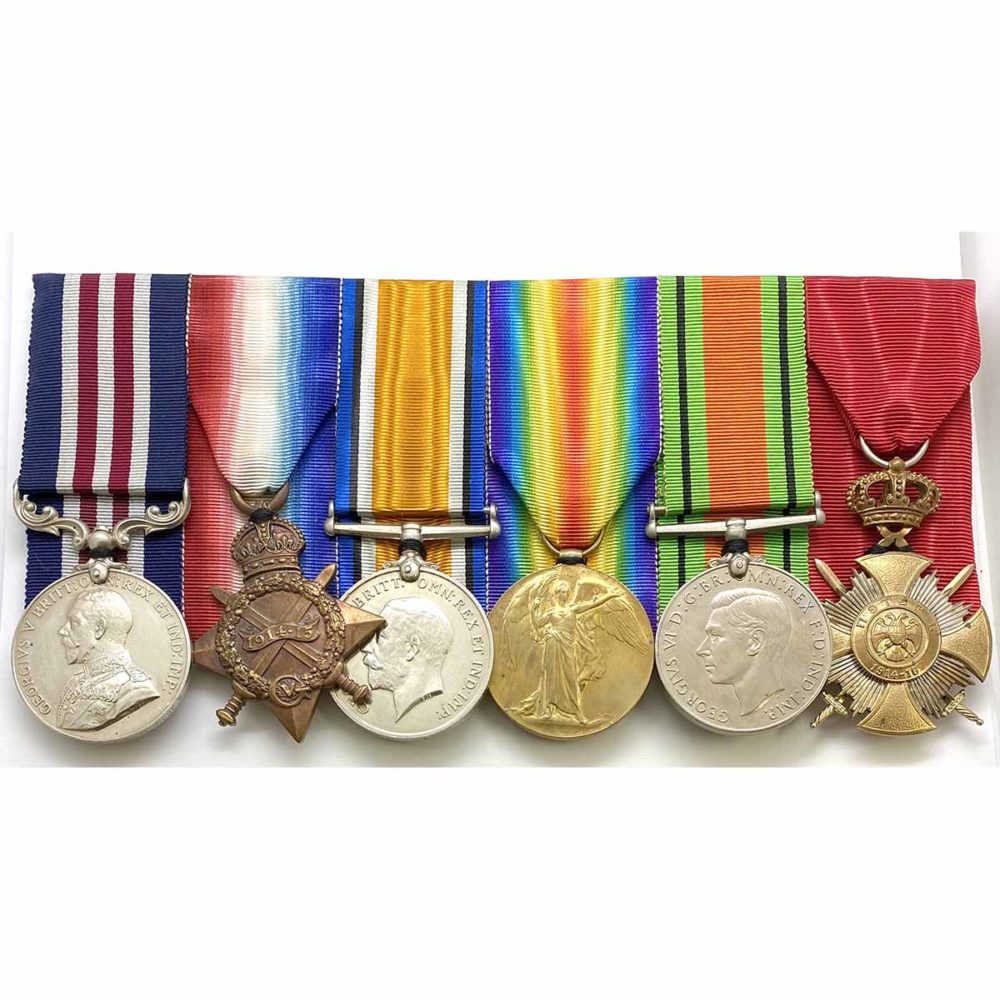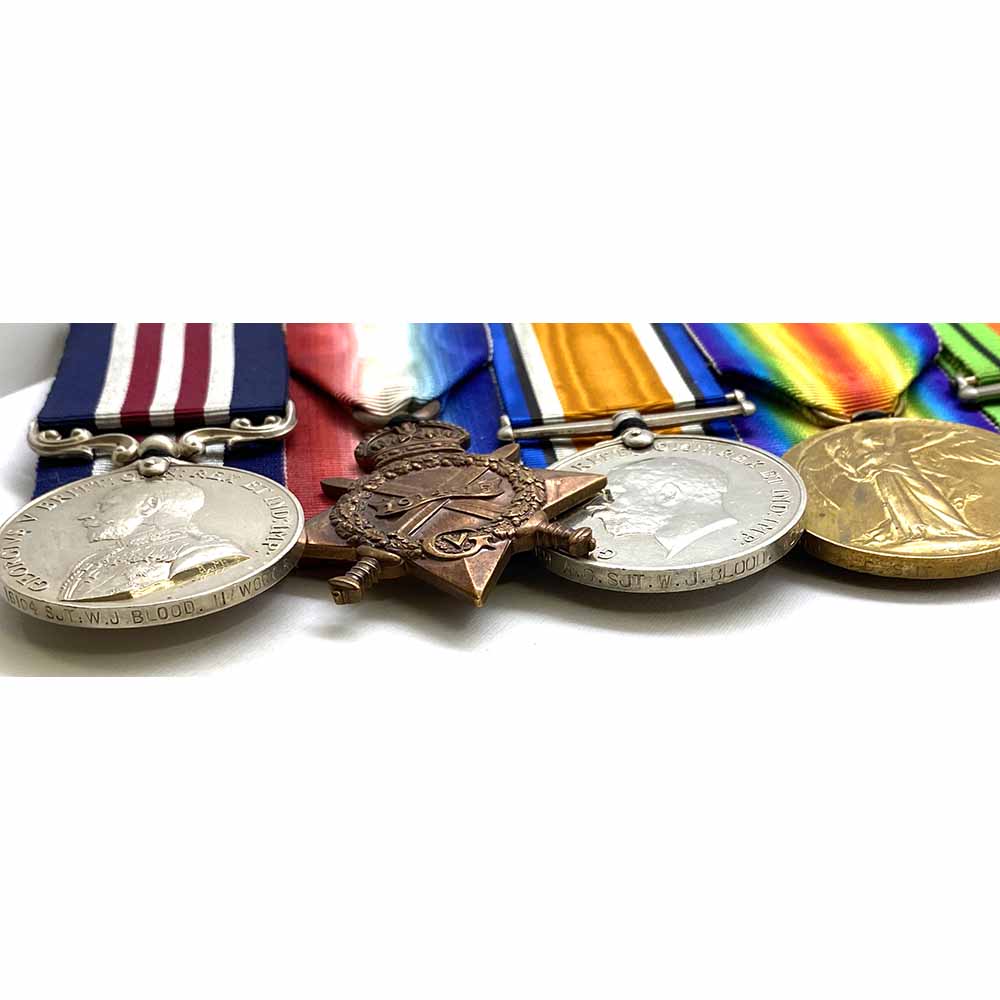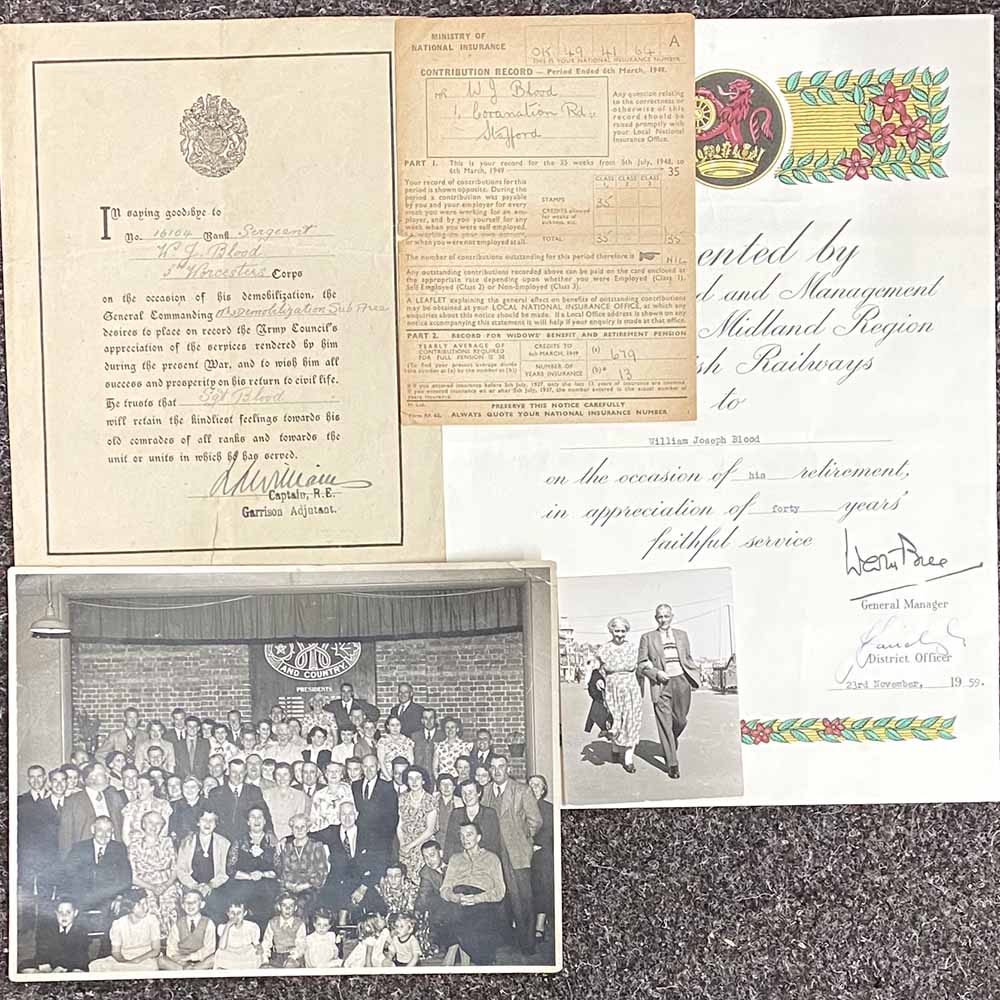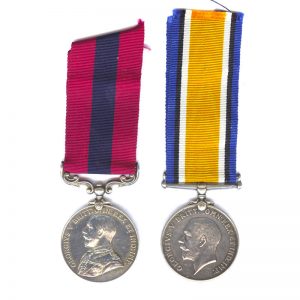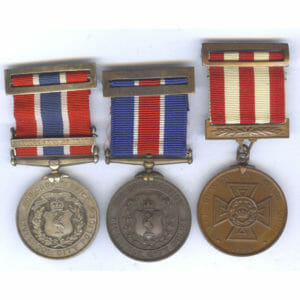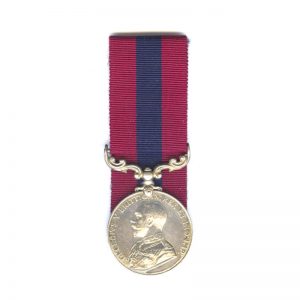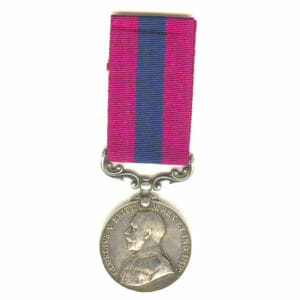Description
Military Medal GV, 1914-15 Star Trio, Serbian Cross of Karageorge, 1st Class, with swords, 16104 Sergeant William Joseph “Joe” Blood, 11th Battalion Worcestershire Regiment, for service in Salonika against the Bulgars.
Awarded the Military Medal for the battle of Doiran, 24-25th April 1917. Announcement of the Serbian Cross of Karageorge, 3rd June 1919 London Gazette
The Regimental History of the Worcestershire Regiment in the Boer War, by H. Fitzmaurice Stack, page 231 reads:
“Away on the left flank an attempt was made by a small party of the Worcestershire to bomb along the communication trench which ran across the spurt. In that endeavour Lance Corporal G. Harold showed the greatest bravery. Under heavy fire from the enemy trench mortars he led a squad of bombers along the enemy’s Trench. Though wounded, he continued pluckily to fight until finally disabled by a second wound. Gradually that attack along the communication trench was brought to a standstill; bombs began to run short and the enemy’s bombers, amply supplied, gradually gained ground.”
The survivors of the bombing attack were compelled to fall back down the communication trench and out on to the slop of the ravine beyond.
They were rallied by Sergeant W.J. Blood. Sergeant Blood was now commanding a platoon, for his officer had been killed. He led his men forward to a renewed attack reoccupied part of the communication trench and held it thenceforward against all counterattacks.”
From the war diary of his battalion:
“Being a platoon commander, he led his platoon through a heavy hostile barrage.
The platoon suffered heavy casualties but he rapidly collected and organised about 40 stragglers and led them to the front where he filled a gap in the line and prevented piercing it at this point.
This portion of the line was subjected to heavy Trench Mortar Fire almost continuously but Sjt Blood maintained his ground and encouraged his men by his personal bravery. Being forced to withdraw eventually owing to superior numbers he again collected some men and went forward to the enemy’s position.
He succeeded in reaching it and held it against all counterattacks until ordered to withdraw about 2 hours later. He showed remarkable initiative and courage throughout the operations.”
M.M. officially impressed: “16104 Sjt: W. J. Blood. 11/Worc. R.”
1914-15 Star officially impressed: 16104 L. Sjt. W. J. Blood. Worc: R.”
BWM and Victory officially impressed: “16104 A. C. Sjt. W. J. Blood. Worc. R.”
The Serbian Cross of Karageorge “Karadjordje”, is a well preserved example with gilding to the swords and cross.
One of only 110 awards of the Cross of Karageorge, 1st Class, one of the highest honours from Serbia for a non commissioned officer.
With an original certificate upon 40 years of working for British Railways, his national insurance certificate, original certificate of demobilisation and 2 original photographs of the recipient, one a group photo at a function and one with his wife.
Joseph William Blood, known as Joe by his friends and family, was born during 1894 in Forden, Montgomeryshire, Wales but moved with his family when he was young to Stone in Staffordshire, he would remain in Staffordshire for the remainder of his life.
His father Thomas Colly Blood was a Farmer and he grew up working on the farm with his father at Walton Hill Farm, Stone, Staffordshire.
Following the war he returned home and was discharged, finding a job with the London Midland Region of British Railways,
with whom he worked for 40 years earning a certificate on 23rd November 1959 upon his retirement. In 1939 he worked as a Railway Guard Foreman.
He died in Stafford on 6th March 1975.
At the outbreak of the war he was aged 20 and attested for service with the local Worcestershire Regiment, being posted to 11th Battalion.
11th Battalion had been formed at the beginning of the war in September 1914.
The first year of the war was spent training the battalion, they trained at Long-bridge Deverill preparing for war.
In September 1915 it was decided to strengthen the Third Army at Picardy with the addition of a 3rd Army Corps.
The 11th Battalion left their training ground and embarked at Southampton to cross over to Boulogne.
The battalion was billeted for some months with the 78th Brigade, before they were ordered to proceed to Serbia, they arrived in November 1915.
The Worcesters would then spent over a year in Serbia and Macedonia, notably being engaged in the bloody Battle of Doiran, which lasted from 22nd April 1917 until 9th may 1917 at Lake Dojran.
The deadly back and forth of Artillery barrages led to thousands of casualties, by the end the British casualties were over 12,000 killed, wounded and captured, with the Bulgarians losing only about 2,000 men.
The successful defence by Vladimir Vazov and defeat of the British led to a promotion to Major General and he became a Bulgarian Hero.
The battalion remained in the region, taking part in a various skirmishes and regaining troops, they would again by engaged in the Third Battle of Doiran from 18th-19th September 1918, where a combined Anglo-Greek again fought the Bulgarians under Vazov, again suffering heavy losses of upwards of 8000 men and being forced to retreat.
However fortunately the Serbian, French and Greek combined forces had defeated a large part of the Bulgarians forces during the Battle of Dobro Pole, leading them to retreat and soon afterwards the peace was signed.
Later in life the General Vladimir Vazov who had held off the British Army for the entirety of the campaign, visited England during 1936, he was invited personally by the British Legion and Lord Milne shook his hand “It is a pleasure to meet the Bulgarian delegation, as even though we were enemies, you, like us, fought not only like brave men, but also like gentlemen.” The British paid a great honour to him as they lowered their national flags in his name, Major Goldy, Chairman of the RBL said in his speech: “He is one of the few foreign officers whose name features in our history.”
